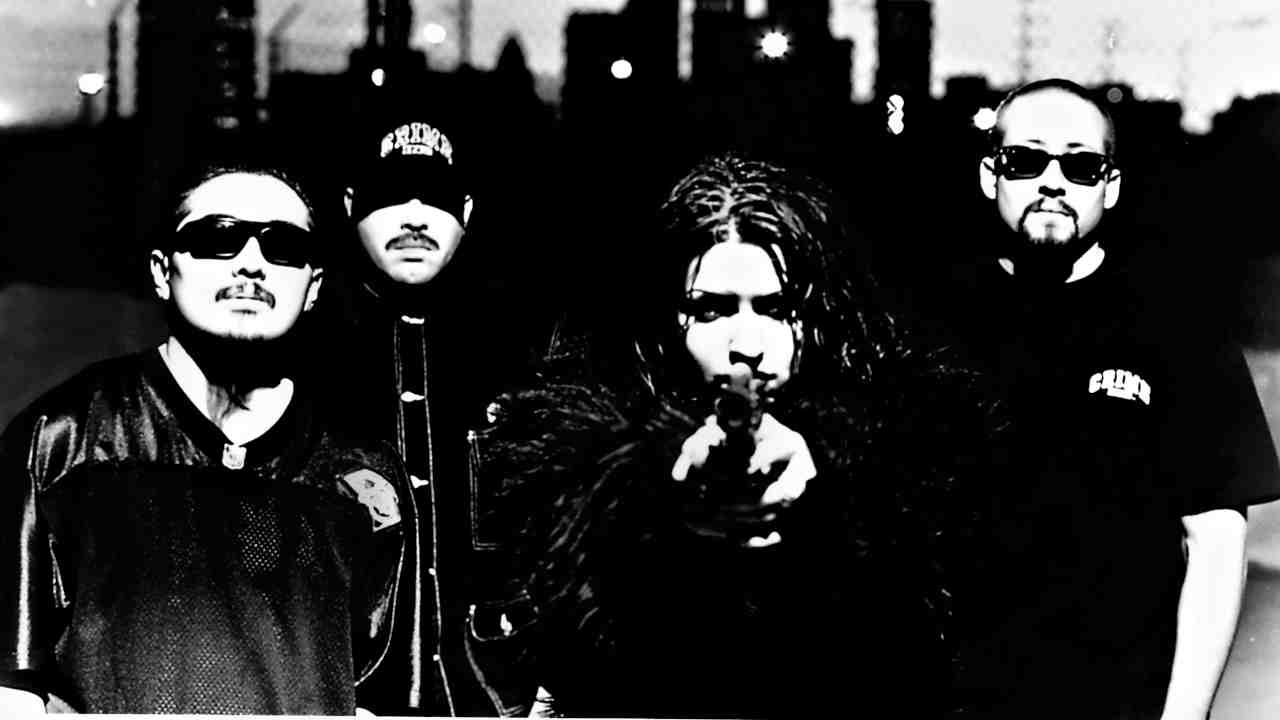The 50 greatest cult metal bands of all time
Stand aside Metallica and Slipknot - these are the cult metal bands who deserve way more love than they get
Select the newsletters you’d like to receive. Then, add your email to sign up.
You are now subscribed
Your newsletter sign-up was successful
Want to add more newsletters?
Manhole / Tura Satana
The fireball collision of rock and hip hop that took place at the start of the 90s seeded a new strain of aggressive music – one that drew on the best of both worlds. Yet most rap-metal bands were just rock kids with an Ice Cube record and a surfeit of testosterone.
Tairrie B was different. She made her name as a rapper with her 1990 debut album, Power Of A Woman, but within a few years, she’d reinvented herself as the singer with rap-metal agitators Manhole, spitting out feminist anthems and redefining perceptions of what it meant to be a woman in a metal band.
Unlike many of her peers, Tairrie wasn’t some suburban knuckledragger. When she rapped, it was real. Her subject matter was authentic and radical in the mid-90s metal scene: violence against women, rape, racial tension, pro-choice issues, police brutality, abusive relationships.
“Manhole were an anomaly,” she says today. “I can’t name another band with a woman doing what we were doing at the time.”
Tairrie was already a pioneer in the hip hop world by the time she formed Manhole. She was the first female rapper to put out a full-length album (the aforementioned Power Of A Woman was released via N.W.A. linchpin Eazy-E’s Ruthless Records). But witnessing an incendiary Body Count live show sparked something in her. “Seeing Ice-T, who was a hardcore gangster rapper, rock with a heavy band backing him really spoke to me. Loudly,” she says.

When she told her manager and label that she wanted to form a rap-rock band, they shut her down. She responded by refusing to finish the album she was working on, firing her manager and eventually extricating herself from her contract with Eazy-E.
This iron-willed determination to do things her way was embedded deep in Manhole’s DNA. Early on, Tairrie organised Rock For Choice gigs and benefits to raise awareness of violence against women. When potential record labels asked her to tone down her lyrical content and take-no-prisoners stage persona, she refused.
Sign up below to get the latest from Metal Hammer, plus exclusive special offers, direct to your inbox!
“I was not Gwen Stefani and our songs were not radio-friendly in the usual way,” she says. “My guys were from Venice [Beach, gang-heavy LA neighbourhood], they were tough. I was kinda scary. We had no desire to be another Hollywood band playing watered down pop-rock songs or a freakshow like Coal Chamber, for fuck’s sake. That was not us.”
German label Noise Records signed Manhole and put them in the studio with Korn producer Ross Robinson to record their debut album, 1996’s All Is Not Well. For once Robinson fluffed his task, though a flat production job couldn’t hide the power of Manhole’s music – and certainly not the impact of Tairrie’s message on tracks such as the anti-rape broadside Victim, and Cycle Of Violence, inspired by the singer’s own experiences of an abusive relationship. They were uncomfortable subjects, but that was the point. “I was outspoken about many hard truths in unflinching detail because I felt these were serious subjects that needed to be addressed.”
All Is Not Well chimed with the emerging nu metal movement, and the UK and Europe embraced them. But they were blindsided the following year when a lesser-known punk band also called Manhole threatened to sue unless they either bought the name from them or changed it. Unable to buy the name, the singer rebranded her band. At least she picked a cool name: Tura Satana, after the star of Russ Meyer’s cult movie Faster, Pussycat! Kill! Kill!. “It was empowering to see this aggressive woman, kicking ass and taking no shit from the men around her,” says Tairrie. “She was my spirit animal and a badass babe.”
The band released one album as Tura Satana, 1997’s Relief Through Release, which dialled back the rap-rock in favour of a more metallic yet textured approach. It was a tremendous record, but they struggled to make the jump to the next level commercially. “The label had constant distribution problems,” says Tairrie. “When a band is on high- profile tours, playing festivals and doing tons of press to promote their album but it can’t be found in the stores, that’s not the fault of the artist.”
By 1998, label problems plus personal issues within the fold had become insurmountable and Tairrie decided to end the band. “I was angry, but part of me was gutted because I had been working so hard to make things happen for us. It was very painful to walk away from it, but also a relief.”
Tairrie’s post-Tura Satana career saw her put together My Ruin, where she was soon joined by guitarist, songwriting partner and future husband Mick Murphy. My Ruin released eight albums before the pair put it on standby mode in 2011. She’s not been idle since then, putting out two hip hop albums, 2015’s Vintage Curses and 2020’s Feminenergy, and working on a book.
Frustratingly, history has sidelined Tairrie and her bands to make way for the juggernaut that was nu metal, and bands such as Korn and Limp Bizkit. “I could give a fuck about bands like Limp Bizkit,” she says. “I’ve never viewed Fred Durst as my contemporary. Manhole and Tura Satana both got lumped into the whole ‘nu metal’ thing. We were our own unique entity.”
Even beyond genre definitions, Tairrie deserves wider attention and respect for the ground she broke in the 90s. “I think I can confidently say that I kicked down a few doors for women in rock to walk through, just like the women did who came before me,” she says. “Empowered women empower women and we can be whatever we want to be.”
Listen to: Eternalux (Relief Through Release, 1997)
Current page: The 50 greatest cult metal bands ever
Prev Page The 50 greatest cult metal bands ever Next Page The 50 greatest cult metal bands everFounded in 1983, Metal Hammer is the global home of all things heavy. We have breaking news, exclusive interviews with the biggest bands and names in metal, rock, hardcore, grunge and beyond, expert reviews of the lastest releases and unrivalled insider access to metal's most exciting new scenes and movements. No matter what you're into – be it heavy metal, punk, hardcore, grunge, alternative, goth, industrial, djent or the stuff so bizarre it defies classification – you'll find it all here, backed by the best writers in our game.

